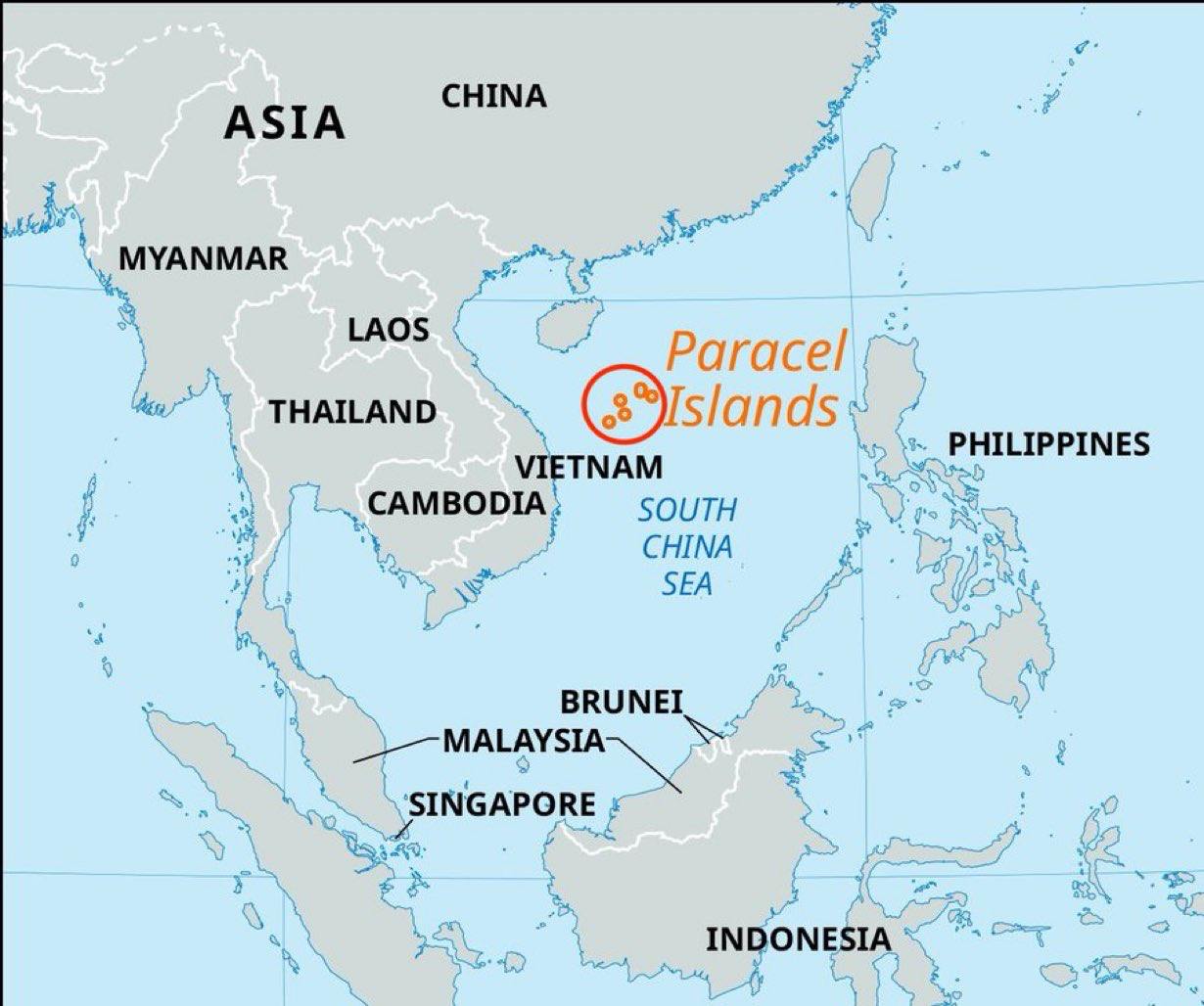In an incident that is capable of sparking more tensions in the already volatile South China Sea, two Chinese vessels attacked a Vietnamese fishing ship over the weekend. The incident has left the Vietnamese government, which has maintained a cordial relationship with China, fuming.
The initial reports in Vietnamese media stated that a shipping vessel belonging to the country was attacked by two foreign ships near the Paracel Islands, which remains disputed between Vietnam and China. The incident resulted in injuries to at least ten fishermen.
Vietnamese newspaper Tien Phong reported that 40 individuals from the foreign ships thrashed the fishermen aboard the Vietnamese ship with iron pipes and stole their fishing gear. Later, it was disclosed that these foreign vessels belonged to China, which maintains a constant presence at the Paracel Islands.
The injured Vietnamese fishermen were seen being carried from their boats on stretchers in the footage that was posted on Tien Phong’s website. According to the report, two fishermen had broken arms and one a broken leg. The incident has left Vietnam fuming.
Vietnam’s Foreign Ministry condemned the incident, calling it a “brutal attack” by China. The ministry spokesperson, Pham Thu Hang, said in a statement that Vietnam “resolutely protests the brutal behavior of Chinese law enforcement forces against Vietnamese fishermen and fishing vessels operating in the Hoang Sa archipelago of Vietnam,” referring to the Vietnamese name for the Paracel Islands.
Without mincing words, the statement added that the actions by Chinese law enforcement forces “seriously violated Vietnam’s sovereignty” over the archipelago.
The Vietnamese foreign ministry further stated that the government had “sternly communicated with the Chinese Embassy in Hanoi, strongly protesting the above-mentioned actions of Chinese law enforcement forces.”
Following the Vietnamese Foreign Ministry’s response to China, several analysts pointed out that it was unusual for the country to openly criticize China regarding issues related to the South China Sea.
The incident, however, has been downplayed by China and denied claims that its forces had caused any injuries to the Vietnamese fishermen.

A spokesperson for Beijing’s foreign ministry told AFP that the “reports in question are not in line with the facts” while confirming that an incident had happened. “China has indisputable sovereignty over the Xisha Islands and their adjacent waters,” the spokesperson said, using the Chinese term for the Paracel Islands.
“When Vietnamese fishing boats illegally fished in the relevant waters of the Xisha Islands without permission from the Chinese Government, the relevant Chinese authorities took measures to stop them by the law,” the spokesperson said. “The operation at the scene was carried out in a professional and restrained manner, without any personnel being injured.”
China asserts its sovereignty over nearly the entire South China Sea and is involved in multiple territorial disputes with several Southeast Asian nations, including Vietnam. It has remained marred in hostilities with the Philippines, causing similar injuries to its vessels and personnel near disputed features in the South China Sea.
The incident with a Vietnamese vessel occurred while the two nations were trying to address each other’s concerns and enhance their relationship despite their ongoing territorial dispute.
Not All Is Okay Between China & Vietnam
Since the South Vietnamese army was driven off the Paracel Islands by China in 1974, the archipelago has remained under China’s control. Vietnam, nonetheless, continues to claim the island as its territory, which has become a point of contention between the two states.
According to satellite imagery recorded in recent years, China has reclaimed territory in the South China Sea by either building new islands or reclaiming more ground surrounding existing ones. China has built ports, military outposts, and airstrips — especially in the Paracel and Spratly Islands — and has done so by sandbagging existing reefs. China has militarized Woody Island (the largest of the Paracel Islands) by deploying fighter jets, cruise missiles, and a radar system.
Despite maintaining cordial ties, Vietnam has often protested China’s expansionist moves in the region. For instance, earlier this year, Vietnam expressed concern about Chinese research vessels’ increased activity in its waters and asked Beijing to cease its “illegal activities.”
In 2019, Chinese and Vietnamese coast guard vessels were involved in a week-long stand-off over a reef in the South China Sea. It was a major stand-off between the two countries since a Chinese oil rig arrived off the disputed Paracel Islands in 2014.
The two nations faced another impasse in 2023 when Vietnam chose to increase the scope of its oil drilling activities in Vanguard Bank, a region claimed by the two nations. Reports indicate that vessels from both states have started taking up positions in the area to displace ships of the opposing side.

Despite these underlying tensions, the two sides have tried to inspire confidence and build trust to prevent the straining of ties. For instance, after being elected as Vietnam’s President, To Lam made his first overseas visit to China in August 2024 and met Chinese President Xi Jinping.
Excited at the visit, Xi said, “China has always regarded Vietnam as a priority in its neighborhood diplomacy and supports Vietnam in adhering to the Party leadership, taking the socialist path suited to its national conditions, and deepening the cause of reforms and socialist modernization.”
Lam referred to his visit to China as “the affirmation of the Party and the Vietnamese government to value the relation with China” and stated that the two countries’ bilateral ties were a “top priority in Vietnam’s external policy”.
Over the years, the two sides have maintained cordial relations, deepened trade ties, and signed several cooperation agreements. Vietnam has been praised for managing its relationships with China and the United States during a notably delicate period in the region. The country has also been engaging with the Philippines, China’s primary adversary in the South China Sea.
However, the latest incident reminds us that not all is well between the two sides as China becomes more aggressive in the South China Sea.
- Contact the author at sakshi.tiwari9555(at)gmail.com
- Follow EurAsian Times on Google News




